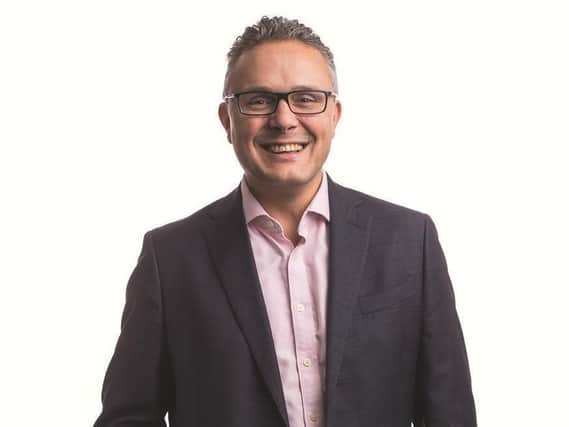There must be more emphasis on financial education - Ismail Mulla


However, not all savers are equal and the concern is that several households will have eaten away at their rainy day funds during the pandemic.
This makes it all the more important that financial literacy is given greater credence in the national curriculum to equip future generations and enable them to deal with economic shocks.
Advertisement
Hide AdAdvertisement
Hide AdCasting my mind back to nearly 15 years ago when I left the school system, I can only ever recall having some cursory lessons on personal finance.
All the things that I have picked up about money management have come from my father. I remember him encouraging me to get a credit card for the additional protections it offers when shopping online. How he drilled into me the need to stay on top of payments and how that can affect something called my credit score.
There have been other things that I have picked up through osmosis and reading – different savings accounts, how interest rates work etc. But very little that I would attribute to my time at school.
Don’t get me wrong, I had some brilliant teachers who did a fantastic job. Although I can see how others from my generation may lack the tools to help them through an often complex financial world.
Advertisement
Hide AdAdvertisement
Hide AdYou’d think that things have changed in recent years but speaking to the chief executive of Yorkshire Building Society, it’s clear that’s not the case.
Mike Regnier said: “Financial education is not something that is well covered in schools.
“The financial literacy of children when they leave school can vary enormously and a lot of it depends on family – what their parents and grandparents have taught them rather than what they have learnt at school. It’s part of the national curriculum but it’s not compulsory so actually a lot of schools don’t focus on it all.”
This isn’t just another finance company boss griping from the sidelines. Yorkshire Building Society has been actively trying to change things through its Money Minds programme.
Advertisement
Hide AdAdvertisement
Hide AdMoney Minds freed up colleagues to go into schools, pre-Covid, to deliver basic finance-related exercises with children.
“You can see just how interested they are in it and they take an awful lot of benefit from it,” says Mr Regnier, who has been involved in some sessions himself. “For us that’s something that we are encouraging as many of our colleagues to participate in.”
Recently, the mutual launched a digital version of Money Minds enabling schools to access advice virtually.
“We’re a small organisation so the difference that we can make compared to the difference others can make is relatively modest but it’s an important part of what we’re here to do,” says Mr Regnier.
Advertisement
Hide AdAdvertisement
Hide AdWhile it’s great to see that some children at least have access to a programme like Money Minds, it’s clear that there needs to be a more serious focus on equipping future generations with a sound personal finance understanding.
Mr Regnier says: “If this wants to be done properly then it needs to be taken seriously as part of the national curriculum.
“If the Department of Education felt this really was a priority then it would make it compulsory and it would set expectations around the amount of time that schoolchildren should be expected to spend learning the basics of financial education.
“What interest rates mean. How to budget and save. How to deal with debt. The difference between a credit card and a debit card. These are really basic things that a lot of people don’t get the right level of instruction on.
Advertisement
Hide AdAdvertisement
Hide Ad“It would be a relatively straightforward thing to do but it just needs to be a priority for the Department of Education.”
It boggles my mind that the Government is throwing so much energy into pushing Latin across state schools when we have this very obvious need for better personal finance education.
Maybe in the future I can go down to my bank and ask them in Latin to check my savings account?
Facetiousness aside, it’s good to see another business engaging with the future of our country.
---
Support The Yorkshire Post and become a subscriber today.
Advertisement
Hide AdAdvertisement
Hide AdYour subscription will help us to continue to bring quality news to the people of Yorkshire. In return, you'll see fewer ads on site, get free access to our app and receive exclusive members-only offers.
So, please - if you can - pay for our work. Just £5 per month is the starting point. If you think that which we are trying to achieve is worth more, you can pay us what you think we are worth. By doing so, you will be investing in something that is becoming increasingly rare. Independent journalism that cares less about right and left and more about right and wrong. Journalism you can trust.
Thank you
James Mitchinson
Comment Guidelines
National World encourages reader discussion on our stories. User feedback, insights and back-and-forth exchanges add a rich layer of context to reporting. Please review our Community Guidelines before commenting.